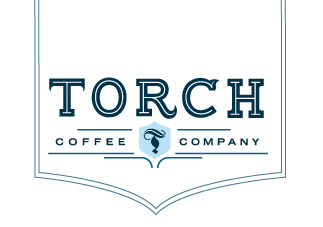My wild ride in chipping away at some of the complexity in coffee to find a few note worthy elements for the purpose of coffee analysis.
By Vernon Omeri
Barista/Roaster at Addington Coffee Co-op
Every time I heard any of my fellow New Zealanders mention Coffee Quality Institute’s Q-grader exams it was always shrouded in complexity and mystery. Want to learn to be a barista? Yeah, sure. Easy. Keen to try your hand at roasting? No problem. Fire away. Sit the Q? Well, that is a mighty fine ambition my friend, but you will need a few years of experience and learning to prepare for that, people would say, besides it costs a lot of money for the fees.
It was spoken of as one of those near impossible feats in coffee you might achieve in your lifetime but only after spending an exorbitant amount of time cupping, smelling and analysing the rich chemistry in coffee. Folklore had been written of the many that had tried and failed CQi’s barrage of 20 tests. Before coming to Torch in Pu’Er, Yunnan, China, a friend of mine retold a story of his friend who sat the Q-grader four times having failed the acids test three times until he spent a week before not having any sugar. Such was the difficulty of such tests and the lengths to which one must go to reach climb this ‘Everest’ of coffee exams. No one attempts to climb Everest as an amateur so do I dare to call myself worthy to climb this mountain? Seemingly improbably.
My journey through the Q has been down to earth-a very grounding experience. I came very intimidated by the Q and down played taking a chance to sit it. Every time I mentioned possibly trying to examine for it, a Torch staff member would simple say: “Oh, the Q is easy. You can do it.” What? I would say to myself. That is easy for you to say. You are in a coffee lab many hours a day most of your week, surrounded by coffee and SCAA standards every day. It’s easy for you to say, I thought. However, as I studied throughout the weeks leading up to the Q I found their words to be increasingly true.
Much like the complexity of coffee and the dizzying array of Q exams, the Torch staff broke the tasks into a number of key elements. Little steps with each task and key strategies to decipher differences helped build a repertoire of skills to prepare well for the exams. The main ideas were to remain calm and get in touch with your senses, to trust them and their first impressions and to confirm them with other senses-a type of sensory ‘team work’.
Staff helped with creating an atmosphere of learning that built momentum for me during the penultimate week.
Although a highly stressful environment, it was clear and precise instructions to breaking down each test that helped me gain confidence and to try strategies for myself that made sense, following their logic study eventually paid off. Tips like working on flavour modulation to work out the water and blends test. Thinking about subtle differences such as a short or long aftertaste as well as acidity and sweetness differences helped me nail the Roaster I.D. test. Looking for the most and the least complex cup helped cupping in the various regional groupings helped immensely.
Slowly these bits and pieces helped me to pull together footholds to ascend ‘the mountain’, As the week wore on the climb became easier and the hill not as steep or perplexing. The summit was within reach.
There were some miraculous passes such as getting 75/100 for the General Knowledge test(75 is the bottom mark) and passing the Sugar Browning Aroma test when I was sure my nose was over-saturated. They were passes that were unexplainable and came as a result of lots of prayer. It seems when things are going well that fortune favours the brave.
I received the Q-grader certificate a few days ago much to my relief. What a ride! While truly grateful to the staff there for getting me through it has new ‘view’ from the top that going through the process of studying for the Q-grader brings-a new appreciation for the mystery and complexity that is coffee and new friends to share it with.
-Vernon

